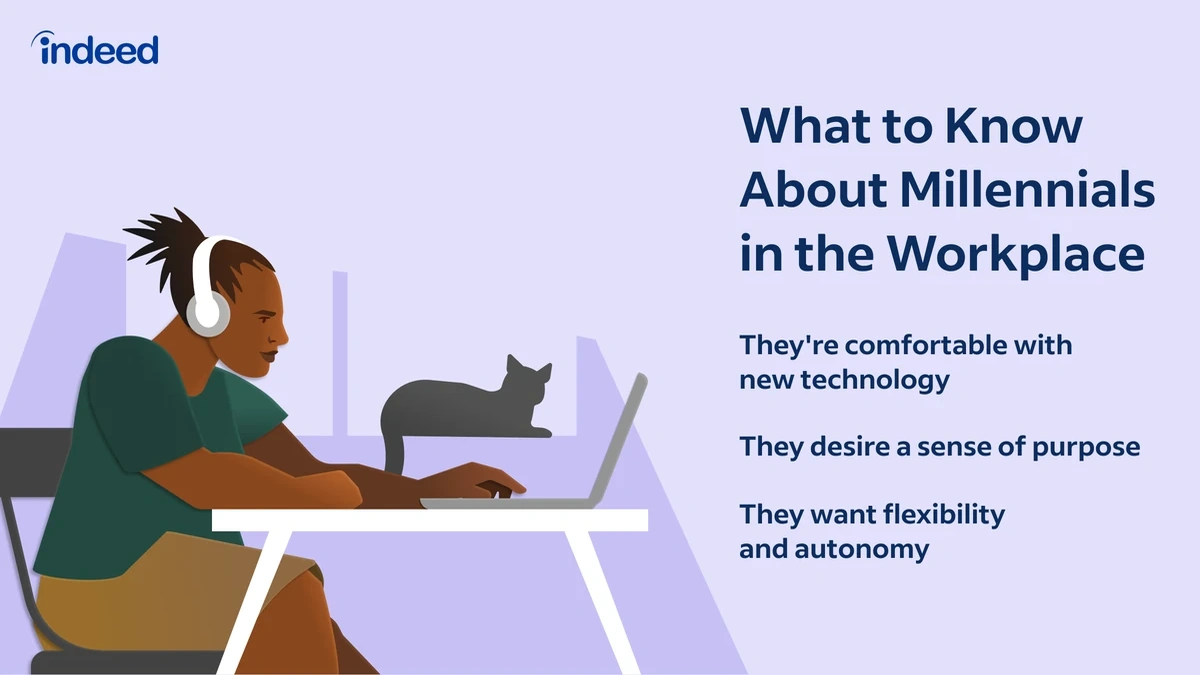Let’s be honest, millennials get a bad rap. We’re constantly bombarded with stereotypes: lazy, entitled, obsessed with social media, and, of course, the infamous avocado toast. But here’s the thing: there’s so much more to this generation than meets the eye. What fascinates me is how societal shifts and economic realities have shaped the millennial experience – and why understanding this is crucial for businesses, marketers, and, well, everyone else.
The “Why” Behind the Stereotypes | Economic Anxiety and the Gig Economy

Why are millennials often portrayed as job-hoppers? It’s not just a lack of commitment; it’s often a direct response to the economic landscape they’ve inherited. Growing up during recessions, witnessing corporate downsizing, and facing student loan debt has instilled a sense of economic anxiety. This has, in turn, driven many millennials to embrace the gig economy and prioritize experiences over traditional career paths. But,according to Investopedia, the gig economy offers many benefits to young professionals, including more freedom and flexibility.
Think about it: a traditional 9-to-5 job might seem like a safe bet, but for a generation that’s seen companies crumble, the security feels illusory. So, millennials are often more willing to take risks, pursue passion projects, and prioritize work-life balance – even if it means sacrificing some financial stability. It’s a trade-off, and one driven by lived experience.
And that avocado toast? It’s not just a symbol of millennial extravagance; it’s a convenient and often healthier alternative to fast food for a generation that values wellness (more on that later).
The Rise of Conscious Consumerism | Values-Driven Spending
This is where things get really interesting. Millennials are often described as value-driven, and that translates directly into their spending habits. They’re not just buying products; they’re investing in brands that align with their personal values. Sustainability, social responsibility, and ethical sourcing are all major factors influencing their purchasing decisions.
A common mistake I see businesses make is underestimating the importance of transparency. Millennials are incredibly savvy consumers. They do their research, read reviews, and demand to know where their products come from and how they’re made. If a company is caught greenwashing or engaging in unethical practices, millennials are quick to boycott and spread the word. In fact, brand loyalty for millennials is not guaranteed; it has to be earned.
Let me rephrase that for clarity: it’s not enough for companies to simply say they’re ethical or sustainable. They need to demonstrate it through concrete actions and verifiable practices. Otherwise,they’ll quickly lose the trust of this influential demographic .
Mental Wellness and the Pursuit of Happiness | Beyond Material Possessions
What truly defines the millennial generation is their focus on mental wellness. The generations before them were often encouraged to work hard, achieve financial success, and accumulate material possessions. Millennials , on the other hand, are increasingly prioritizing mental health, personal growth, and meaningful experiences.
This isn’t to say that millennials don’t care about money or success. But they’re redefining what those terms mean. For many, success isn’t just about climbing the corporate ladder; it’s about finding work that’s fulfilling, creating a life that’s balanced, and making a positive impact on the world. This shift in perspective is driving the demand for flexible work arrangements, mindfulness practices, and experiences that promote well-being – like travel and wellness retreats.
Tech-Savvy and Hyper-Connected | Navigating the Digital Landscape
Okay, this one’s obvious: millennials are digital natives. They grew up with the internet, social media, and mobile devices. But it’s not just about being tech-savvy; it’s about how technology has shaped their communication styles, social interactions, and worldviews.
The constant connectivity can be a double-edged sword. On one hand, it provides access to information, opportunities, and global communities. On the other hand, it can lead to information overload, social comparison, and a constant pressure to present a perfect image online. This is why manymillennials are consciously seeking ways to disconnect, practice digital mindfulness , and cultivate genuine connections in the real world.
Future of the Millennial | Shaping the World
So, where does this leave us? The future of millennials is bright. Even though there has been some criticism of this age group, they have a lot to offer the world. Millennials are not a homogenous group. The characteristics of millennials , like their unique values, economic understanding, and tech savviness, are shaping the world in profound ways. They’re driving innovation, demanding social change, and redefining what it means to live a fulfilling life. The key is to look beyond the stereotypes and understand the underlying factors that have shaped their experiences. It is only then that we will see this generation in a light that is true and genuine.
FAQ | All about Millennials
What’s the age range for millennials?
Generally, millennials are defined as those born between 1981 and 1996.
Are all millennials obsessed with social media?
While social media is prevalent among millennials, usage varies greatly. Many are also conscious of its potential downsides and actively seek ways to balance their online and offline lives.
What are the defining characteristics of millennials in the workplace?
Millennials in the workplace are often characterized by their desire for flexibility, collaboration, and meaningful work. They also value feedback and opportunities for professional development.
How do businesses appeal to millennial consumers?
Businesses can appeal to millennial consumers by prioritizing transparency, sustainability, and social responsibility. They should also focus on creating authentic experiences and building genuine relationships with their customers.
How has growing up in times of economic uncertainty impacted millennials?
Growing up in times of economic uncertainty has led millennials to prioritize financial stability, save where they can, and be mindful of their budget.

